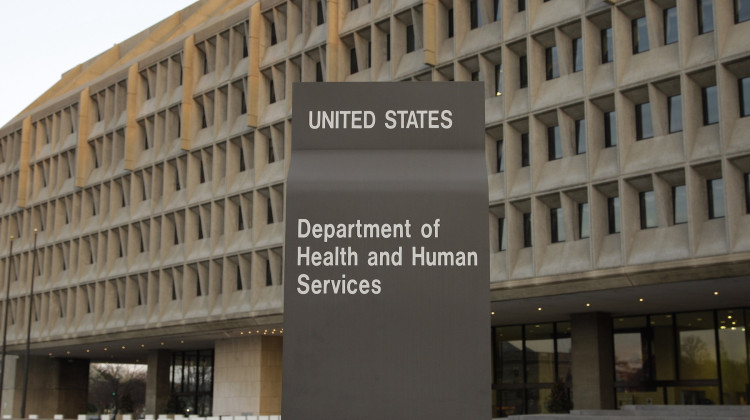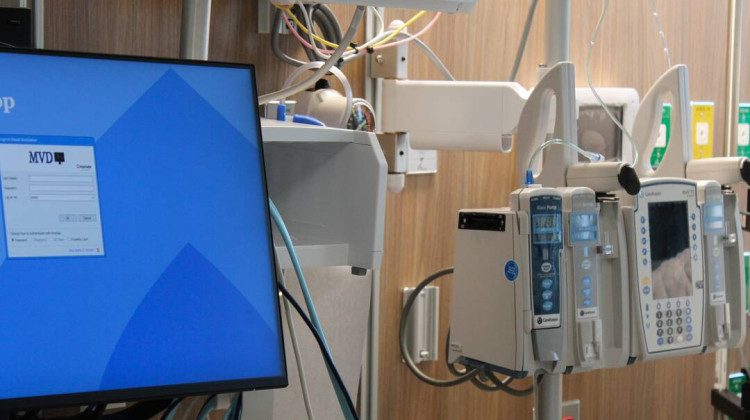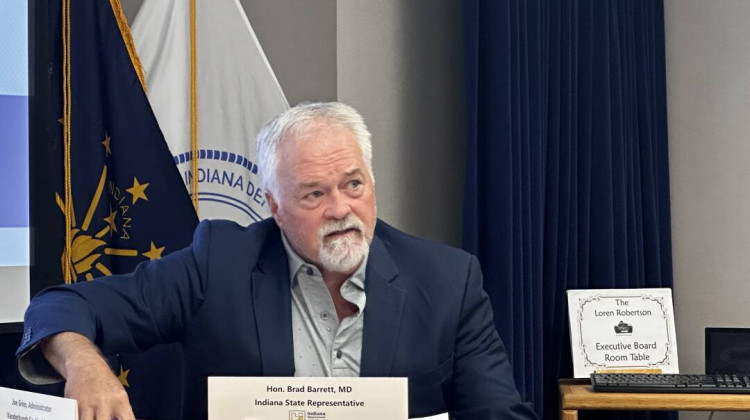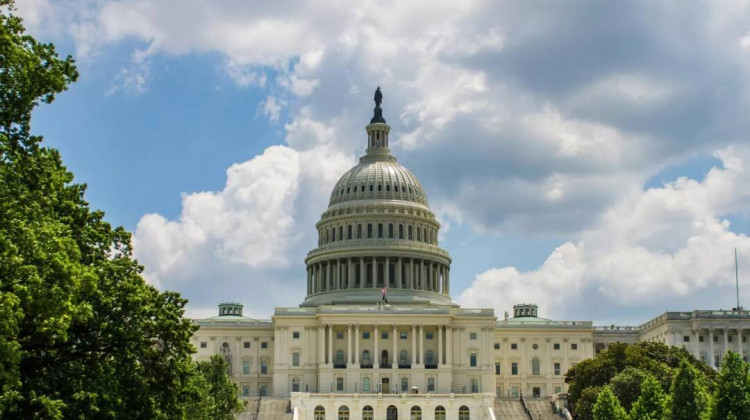
The study funding process came to a halt when the Trump administration announced on March 7 the cancellation of roughly $400 million in federal funds to Columbia University, through which funding flowed before it was sent to research sites across the country.
(AP Photo/Alex Brandon, File)The Trump Administration’s funding cancellations could dissolve a large nationwide study that’s been ongoing for 30 years on diabetes and pre-diabetes. The research was partially conducted throughout the Midwest.
Medical professionals say the landmark Diabetes Prevention Program changed the understanding of the process of developing type 2 diabetes and created the term ‘pre-diabetes’ — a condition in which a person’s blood sugar is higher than normal and can indicate they’re on the cusp of full blown disease. It also contributed to preventative treatments.
Mary de Groot, a professor at Indiana University School of Medicine and a principal investigator for the Diabetes Prevention Program Outcomes Study, said the project has made strides in diabetes treatment. It recently started studying the presence of heart disease, cancer, and Alzheimer’s disease in the same cohort.
“We are on the cusp of having a much deeper understanding of these highly prevalent diseases that affect 1 in 3 Hoosiers, but without funding, we will not be able to see this through and generate the benefits we believe are truly possible,” de Groot wrote in an emailed response.
Columbia University has been managing more than $80 million in funding for the most recent phase of the study, which focuses on Alzheimer’s disease. The federal funds flowed through the university and were then disbursed to research sites across the country including in Indiana, Illinois and Minnesota.
But the process came to a halt when the Trump administration announced on March 7 the cancellation of roughly $400 million in federal funds to Columbia University, which is likely related to the administration’s concerns that Columbia failed to address antisemitism on campus, according to reporting from STAT.
Dr. David Nathan, a Harvard University professor and a board chair for the project, said DPP researchers were notified about the cancellation last month. He pointed out that this is the opposite of what the U.S. Secretary of Health and Human Services, Robert F. Kennedy Jr., said he’d accomplish.
“The irony of all of this is that RFK Jr., when he took his confirmation hearing, said that he wants to focus on chronic diseases — diabetes, dementia,” Nathan said, “and that's exactly what we're studying, and that's exactly what they cut out.”
He said that the more than one thousand participants that the study continues to follow are “worth their weight in gold literally and figuratively,” and that it would cost millions of dollars to recreate a similar study.
In a press release, the American Diabetes Association said that eliminating funding for the program “means the loss of a decade’s worth of important findings and progress toward diabetes prevention and understanding Alzheimer’s disease and associated dementia in diabetes.”
Research shows that 29.7 million people or 8.9% of the U.S. population were diagnosed with diabetes, according to 2021 data from the Centers for Disease Control and Prevention.
In Indiana, around 12% of the adult population — 636,700 people — has diagnosed diabetes and more than 31,200 adults are newly diagnosed with diabetes each year, according to the American Diabetes Association.
In 1996, Indiana University School of Medicine became one of the 27 founding clinical study sites for the national Diabetes Prevention Program.
The study was initially created as a five-year nationwide clinical trial with more than 3,000 adults with a significant family history of type 2 diabetes. It tested whether the risk of developing the disease would diminish if people lost 5% to 7% of their body weight through intensive lifestyle intervention, diet changes and exercise, or using the drug metformin. At the time, the drug was used to treat diabetes but the study showed that the medicine could also prevent it in people who are pre-diabetic.
Indiana has been at the forefront of diabetes research for decades with local researchers creating the lifestyle modification curriculum used in the initial clinical trial. The state was also the first in the country to provide DPP in exercise centers.
Researchers said the findings from this study helped create more than 250 adult diabetes prevention programs and the Diabetes Prevention Program Medicare benefit to allow participation in a 16-week program certified by the CDC. Although many patients have died, de Groot said the 1,700 remaining cohort members are appreciative of the work.
“Some of our participants have shared that this study has ‘saved their lives’ and continues to be a source of vital support for their self-care efforts, even 30 years after the original clinical trial,” de Groot said.
Nathan said the group has asked other institutions to temporarily use some of their own funds to help support the research efforts. But it’s not sustainable long term. If the Trump administration won’t rescind its cancellation, DPP staff want the federal dollars to be distributed through a different institution. But the Trump Administration hasn’t done so yet.
“Even though less than 10% of the funding was spent [at Columbia University], and all the money flowed out to the Midwest, to the Northeast, to the West, to the South, unfortunately, we got caught up in this Columbia mess, and they canceled our ticket, which is really pathetic,” Nathan said.
Researchers said philanthropic and state dollars aren’t enough to fund a study of this scope and that federal funding is crucial to pay for laboratories, specialized administrators and equipment.
And unless a facility has been willing to foot the bill for people's salaries, hundreds of staff across the country have gone nearly a month without a salary. Nathan said these specialized staff cannot be easily replaced. Without a swift resolution, the research initiative could crumble as staff begin to find jobs elsewhere, he said.
Side Effects Public Media is a health reporting collaboration based at WFYI in Indianapolis. We partner with NPR stations across the Midwest and surrounding areas — including KBIA and KCUR in Missouri, Iowa Public Radio, Ideastream in Ohio and WFPL in Kentucky.
 DONATE
DONATE








 Support WFYI. We can't do it without you.
Support WFYI. We can't do it without you.